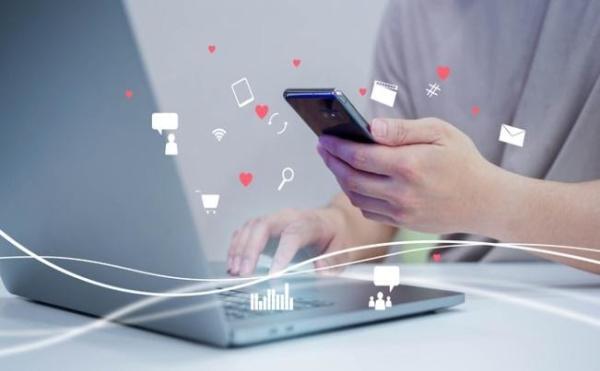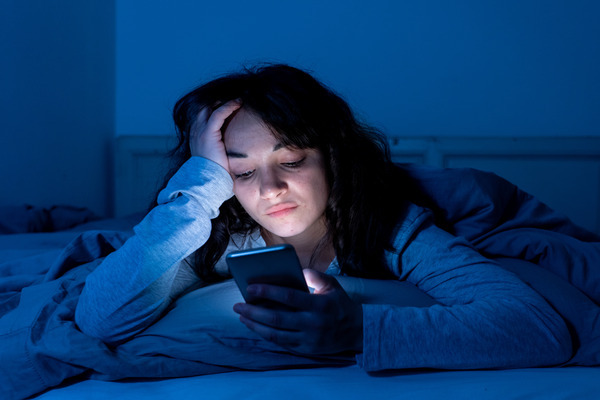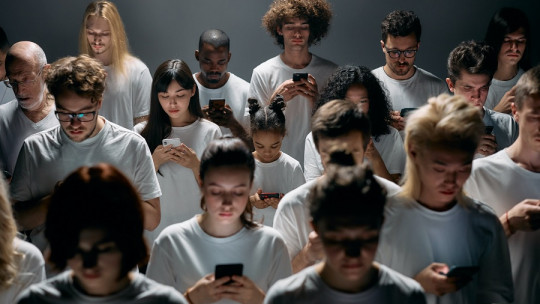Are social networks “good” or “bad”? Surely, if we asked that question to hundreds of people on the street, we would receive very different answers.
The effects of these platforms on our daily lives and on our mental health They can be very varied, especially among young people, who tend to use these digital tools a lot. Today we will tell you about some of them.
Social networks and mental health in young people
If you’re wondering if social media is bad for your mental health, the answer is: it depends. Its influence continues to be studied.
The use we give to these platforms is decisive in identifying their effects. Some of the variables that influence are age, the time of exposure to screens and, of course, the type of content that is consumed.
To see both visions, let’s explore some of the advantages and disadvantages that social networks generate for mental health care.
Positive effects of social networks on mental health
Among their positive aspects, social networks offer the possibility of expressing oneself, creating a community, and even expanding or maintaining different connections that could not be created outside the network. In addition, they offer the opportunity to improve active communication, to open a healthy space for leisure time (depending on the use given to it) and also to share experiences and strengthen relationships with friends and family
In the case of adolescents, they can also serve as a tool to better explore their identity and know they are “accompanied” by people with similar tastes and interests, even around the world.
The negative influence of social networks on mental health
Although the positive effects are several, the disadvantages are also evident, and perhaps the ones that stand out the most when addressing the topic.
More mental disorders?
Different studies, including an essay published by the American Journal of Preventive Medicine in 2017, explain that the increase in time spent inside these applications is directly related to the feeling of isolation in the world outside the screen, and this may have an influence on the development of mental disorders.
Increased anxiety and depression:
On the other hand, it is notable that social networks can have a great impact on the appearance of symptoms of anxiety, low self-esteem or depression, which arise as a result of comparison with other people. Over there The exposure of different life experiences, achievements or luxuries plays a great role so the person being compared only sees a perfect life on others’ social media accounts.
Anxiety can also increase due to the high amount of stimuli a person is exposed to daily. And to this is added the fake news that circulates on the internet and even cyberbullying, which can be negative for the mental health of adolescents and adults.
Sleep disorders
It’s all about balance! Or, well, almost everything. That is why it has been determined that spending an excessive amount of time on these platforms has a great influence on the increase in sleep disorders, especially in the younger population… But it can happen to anyone.
Addiction and FOMO
The need to always be connected may be due to dopamine rush generated by receiving comments, “likes” or other types of digital praise The brain, in search of that reward, will always want to return and not detach itself from what causes that apparently positive effect.
And, when we talk about FOMO (fear of missing out) we are referring to the fear of missing out on something important when we are not connected. A dangerous combination, if you ask us.
Resources to improve mental health on social networks
Minimizing the negative effects of social networks on mental health is possible. These are some of the actions that can help reduce them:
1. Filter what you consume
They say you are what you eat, but also what you listen to and what you read. Consciously deciding what type of content can trigger anxiety, depression, low self-esteem or other negative symptoms is an act of love towards yourself.
2. Set time limits
It’s not just about what you consume, but how long you do it for. If you feel like you’re spending too much time in the digital world, setting connection boundaries will help. This you can do it from your mobile settings where you can create a daily time alert and even block some apps after a certain number of hours.
3. Verify the information
Yes, we know that the need to share news that has impacted us to be of help to others can be very tempting. However, in a world full of fake news, It is important that you take a breath before reacting and sharing Define a list of reliable sources that you can go to and confirm information when in doubt.
4. Remember that perfection does not exist
Nobody shows 100% of their life on social networks. So, when you have the urge to compare yourself and think that your life is much less exciting or perfect, remember that everyone is free to decide what they publish or not. That person you compare yourself to is as human as you.
5. Prioritize life outside the screens
Social networks can be very cool, but so can life outside of them. That is why we invite you to establish spaces to connect in person with your friends and family, to meet new people in activities that you enjoy, to play a sport (or the ones you want), read a book and connect with nature.
And oh, when you’re with people you love, put your phone aside: they deserve your attention too.









